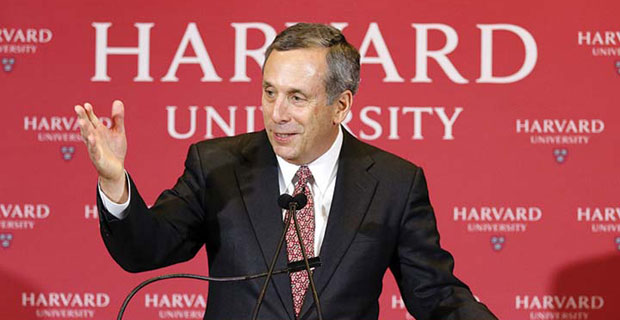Harvard president vows to fight back U.S. SC move on Asian-American kids
“As the Supreme Court has recognised many times, race matters in the United States,” Bracow argued. “I long for the day when it does not, but we still have miles to go before our journey is complete. Harvard will continue to defend with vigorous admissions policies that were endorsed in the thoughtful decisions of two federal courts that concluded that we do not discriminate; our practices are consistent with Supreme Court precedent; there is no persuasive, credible evidence warranting a different outcome. Though I wish yesterday had turned out differently, I remain confident that the rule of law—and the respect for precedent that perpetuates it—will prevail.” The SC is taking up two lawsuits filed by Students for Fair Admissions, a Virginia-based group that says race should play no part in the admission process. The group is led by Edward Blum, a legal strategist. The group argues that Harvard and UNC intentionally discriminate against Asian-American applicants.
Examining six years of data at Harvard, the group found that Asian-American applicants had the strongest academics but were admitted at the lowest rates compared to students of other races. It also found that Harvard’s admissions officers gave Asian-Americans lower scores on a subjective “personal” rating designed to measure attributes such as likeability and kindness. A federal judge in 2019 upheld Harvard’s admissions practices, saying it was “not perfect” but passed constitutional muster. The judge said race-conscious practices always penalize groups that don’t get an advantage, but they’re justified “by the compelling interest in diversity” on college campuses.
An appeals court upheld the ruling in 2020. The group brought similar claims against UNC, saying its process disadvantages white and Asian American students. A federal judge sided with the university last year. In its appeal to the SC, the group asked the panel to review both cases and also to overturn the court’s 2003 decision in Grutter v Bollinger, which upheld admissions policies at the University of Michigan’s law school. That cleared colleges to consider race if it’s done in a “narrowly tailored” way to serve a “compelling interest”. The group’s appeal argued that the Grutter decision “endorsed racial objectives that are amorphous and unmeasurable and thus incapable of narrow tailoring”.











Comments.